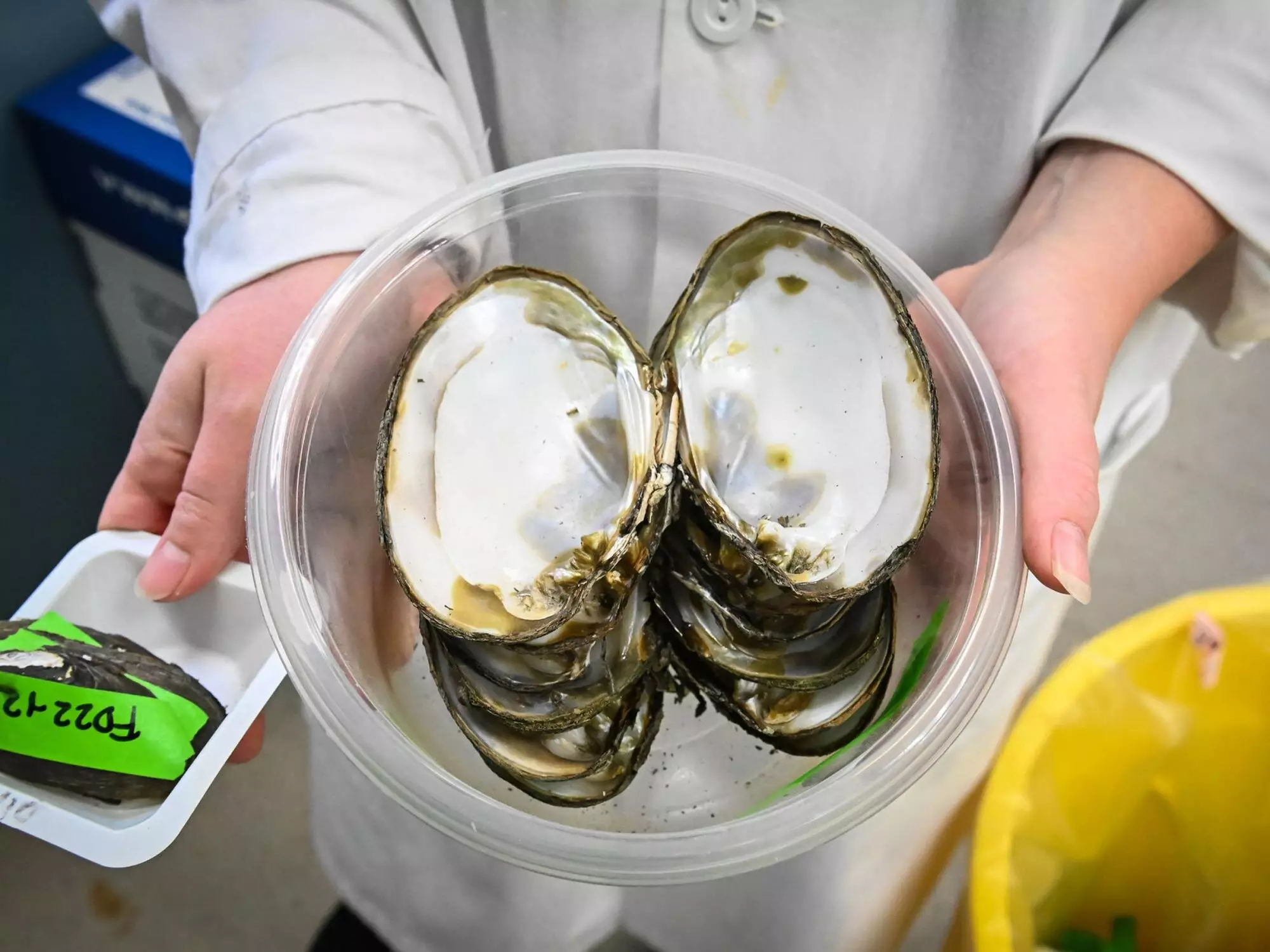Freshwater mussels play a crucial role in indicating the cleanliness of their environment by acting as biomonitors. Researchers from Penn State have conducted a study on the effects of fracking wastewater on these bivalves, revealing some alarming findings.
Fracking Wastewater Contamination
The study focused on a treatment facility in Western Pennsylvania that accepted and treated fracking wastewater for over two decades. Even though the facility has ceased operations, the residual effects of the wastewater are still evident in the tissues and shells of mussels downstream.
One striking discovery was the presence of radium in the mussels, directly linked to the wastewater from fracking in the Marcellus Shale. The radioactive particles in the mussels’ tissues and shells serve as evidence of the long-lasting impact of contaminated water sources.
High Salinity Levels
The treated fracking wastewater discharged into surface water bodies contained significantly higher levels of salinity compared to the natural environment. This disparity in chemical composition posed a threat to the mussels, resulting in adverse effects on their populations closest to the discharge points.
Researchers were able to trace the unique element ratios found in the mussels to the specific contaminants in the Marcellus Shale wastewater. This forensic analysis provided insights into the source of contamination and its effects on aquatic life.
The high levels of radium in the mussels pose a risk to the broader ecosystem, as these filter feeders are consumed by various aquatic animals. The potential bioaccumulation of contaminants through the food chain highlights the need for stricter regulations on wastewater disposal.
The presence of radioactive elements in the mussels raises health concerns not only for aquatic life but also for other species, including humans, indirectly impacted by contaminated water sources. The elevated radiation levels exceed safety standards set by international agencies.
Regulatory Implications
The study underscores the importance of regulating wastewater disposal practices, especially in regions where mussels are harvested for food. By understanding the broader implications of contamination on the ecosystem, policymakers can develop more stringent guidelines to protect vulnerable species.
The research conducted by Penn State researchers sheds light on the detrimental effects of fracking wastewater on freshwater mussels. The findings serve as a stark reminder of the long-term consequences of environmental pollution and the urgent need for sustainable practices to safeguard our water resources.



Leave a Reply